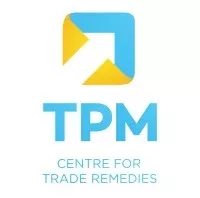Where any safeguard duty is imposed by a WTO member, it is required to compensate the affected members in order to maintain equivalent level of market access that may be agreed upon via consultations. Article 8.2 of the Agreement allows affected members to impose retaliatory measures, if adequate compensation has not been agreed upon within 30 days. Pursuant to tariffs imposed by the US on steel and aluminium through Presidential Declaration in March 2018, India applied retaliatory measures, in the form of increased tariffs on 30 products. Further, while India approached the WTO Dispute Settlement Body (DSB) regarding tariffs imposed by the US, the US has approached the DSB challenging validity of retaliatory measures by India. India also applied retaliatory measures against European Union, pursuant to the safeguard measures imposed against exports of steel, and reduction in tariff rate quotas for India pursuant to the subsequent review of the measures. Recently, India notified its intention to apply retaliatory measures against the UK, when the UK Trade Remedial Authority extended safeguard measures on a number of products, including steel and aluminium products from India.
Introduction to Retaliatory measures
The WTO Agreement on Safeguards ("Agreement") allows its members to restrict imports of a product in the event there is a sharp and sudden increase in imports of any product which is causing, or which is threatening to cause, serious injury to its industry. To ensure that this trade remedial measure is not misused, the Agreement requires any member imposing safeguard measures to compensate the affected members in order to maintain an equivalent level of market access that may be agreed upon via consultations. Article 8.2 of the Agreement allows the members to impose retaliatory measures on the offending member if adequate compensation has not been agreed on within 30 days of the consultation. This of substantially equivalent concessions or other is imposed on the offending country after notification to the WTO Council for Trade in Goods.
India's retaliatory measures
India has been the second-largest crude steel manufacturer in the world since 2018. In the last couple of years, India has invoked retaliatory measures in response to following safeguard measures that hurt its exports of steel and allied products.
A. United States (US)
Section 232 of the Trade Expansion Act, 1962 allows the US President to impose import restrictions based on an investigation and affirmative determination by the Department of Commerce that the imports threaten the national security of the country. In March 2018, the former President Donald Trump, via Presidential Proclamation, applied additional tariffs of 25% and 10% on certain imports of steel and aluminium products, respectively. In May 2018, India notified the Council for Trade in Goods of its decision to engage in retaliatory measures in accordance with Articles 8.2 and 12.5 of the Agreement. This retaliation was in the form of increased tariffs on 30 select products originating in the US ranging from an additional 10% to 50% duties.
Apart from increasing tariffs, India also approached the WTO DSB (DS547) for dispute resolution against the measures imposed by the US in May 2018. A year later, in July 2019, the US approached the WTO DSB (DS585) against the additional duties imposed by India alleging that such unilateral retaliation against the US is violative of the WTO Agreement. The US further stated that, not only was the action under Section 232 not a safeguard measure, but its sovereign right to take measures to protect national security was enshrined under Article XXI of the GATT 1994. The final report on both matters is yet to be issued.
B. European Union (EU)
Against the backdrop of import restrictions by the US, increased global steel overcapacity, and an increase in the use of trade restrictive and defence measures on steel, EU faced threat of re-direction of products that were intended for the US to its own market. A safeguard investigation was accordingly initiated, and definitive measures were imposed in February 2019. The measures imposed by EU consisted of tariff-rate quotas imposed on 26 steel product categories with a duty of 25% for exceeding the quotas determined.
In June 2021, following a review investigation, EU extended the safeguard measures for a period of further period of 3 years until 2024. The tariff-rate quotas for India were reduced as compared to the original measures. In August 2021, India notified the Council for Trade in Goods of its decision to apply retaliatory measures. India estimated that the safeguard measures would result in duty collection of Euro 292.01 million and proceeded to impose tariffs on products originating in EU for the same amount. The safeguard measures underwent another review in 2022 where it temporarily suspended the measures against Ukraine but without any changes for India and other countries.
C. United Kingdom (UK)
Following Brexit, the Trade Remedies Authority (TRA) reviewed measures set to lapse in June 2021 and it recommended an extension of safeguard measures on 10 out of 19 product categories for a period of three years. However, after amendment of regulations in 2021 and 2022, TRA issued its final recommendation extending the measures on 15 products for a period of three years until 2024. When choosing to accept the recommendation, the Secretary acknowledged in her oral statement before the Parliament that the decision to extend the safeguard measures departed from the obligation under the Agreement; however, such action was necessitated by national interest.
India's discontentment with the approach was as vocal as it had been for both EU and the US. By notifying the WTO Council of its intent to invoke retaliatory measures in September 2022, India proposed a suspension of concessions amounting to 247.7 USD million. India expected to achieve this by a 15% additional duty on 22 products including whiskey, cheese, and diesel engine parts.
The path ahead
While India and the US are before the WTO Panel, the US has been open to negotiations with regard to the tariffs imposed. The US signed agreements with EU and Japan to replace import restrictions with tariff rate quota for steel imports from these countries. This also opens up a possibility of negotiations between India and the US, in the future.
In the matter of safeguard measures imposed by EU, the situation looks dire for India. However, the ongoing EU-India negotiations for a free trade agreement offer India the perfect platform to take up the existing safeguard measures for discussion.
Even though the UK has not responded to these retaliatory measures yet, it has not chosen to review the existing quotas for India yet. The UK may, however, choose to take advantage of the negotiations for UK-India FTA, to seek revocation of the retaliatory measures. It could also approach the WTO DSB, though its own lack of compliance with the Agreement when imposing the measure makes the opportunity of a favourable result bleak.
So far, retaliatory measures have not resulted in the easing of the existing safeguard measures on steel. Nevertheless, these retaliatory measures offer India strong bargaining power during FTA negotiations.
The content of this article is intended to provide a general guide to the subject matter. Specialist advice should be sought about your specific circumstances.



